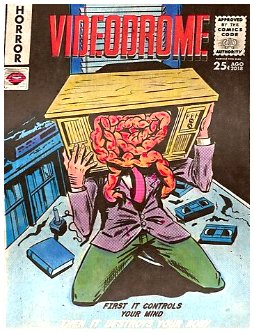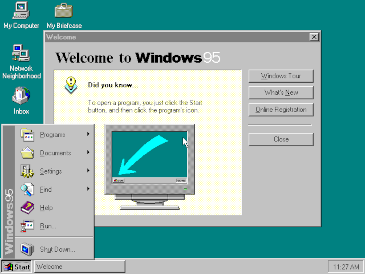cross-posted from: https://lemmy.capebreton.social/post/347724
Windows 95 is a consumer-oriented operating system developed by Microsoft as part of its Windows 9x family of operating systems. The first operating system in the 9x family, it is the successor to Windows 3.1x, and was released to manufacturing on July 14, 1995, and generally to retail on August 24, 1995, almost three months after the release of Windows NT 3.51.
Windows 95 is the first version of Microsoft Windows to include taskbar, start button, and accessing the internet. Windows 95 merged Microsoft’s formerly separate MS-DOS and Microsoft Windows products, and featured significant improvements over its predecessor, most notably in the graphical user interface (GUI) and in its simplified “plug-and-play” features. There were also major changes made to the core components of the operating system, such as moving from a mainly cooperatively multitasked 16-bit architecture to a 32-bit preemptive multitasking architecture, at least when running only 32-bit protected mode applications.
Accompanied by an extensive marketing campaign,Windows 95 introduced numerous functions and features that were featured in later Windows versions, and continue in modern variations to this day, such as the taskbar, notification area, and the “Start” button. It is considered to be one of the biggest and most important products in the personal computing industry.



It’s a bit more complex than that. Intel CPUs (to this day) boot in real mode, which is what DOS is using. In this mode, the system only has access to 640k of RAM. Windows 95 and later switch the processor to protected mode, where the system gets access to all of the RAM and also to memory protection features, so processes can’t real and write each other’s memory. However, in this mode it’s impossible to run real mode code, such as the one provided by DOS.
DOS games had a trick where they briefly switched back to real mode to execute DOS functions (mostly reading and writing to disk) and then back to protected mode, but I don’t think that Windows 95 did that.